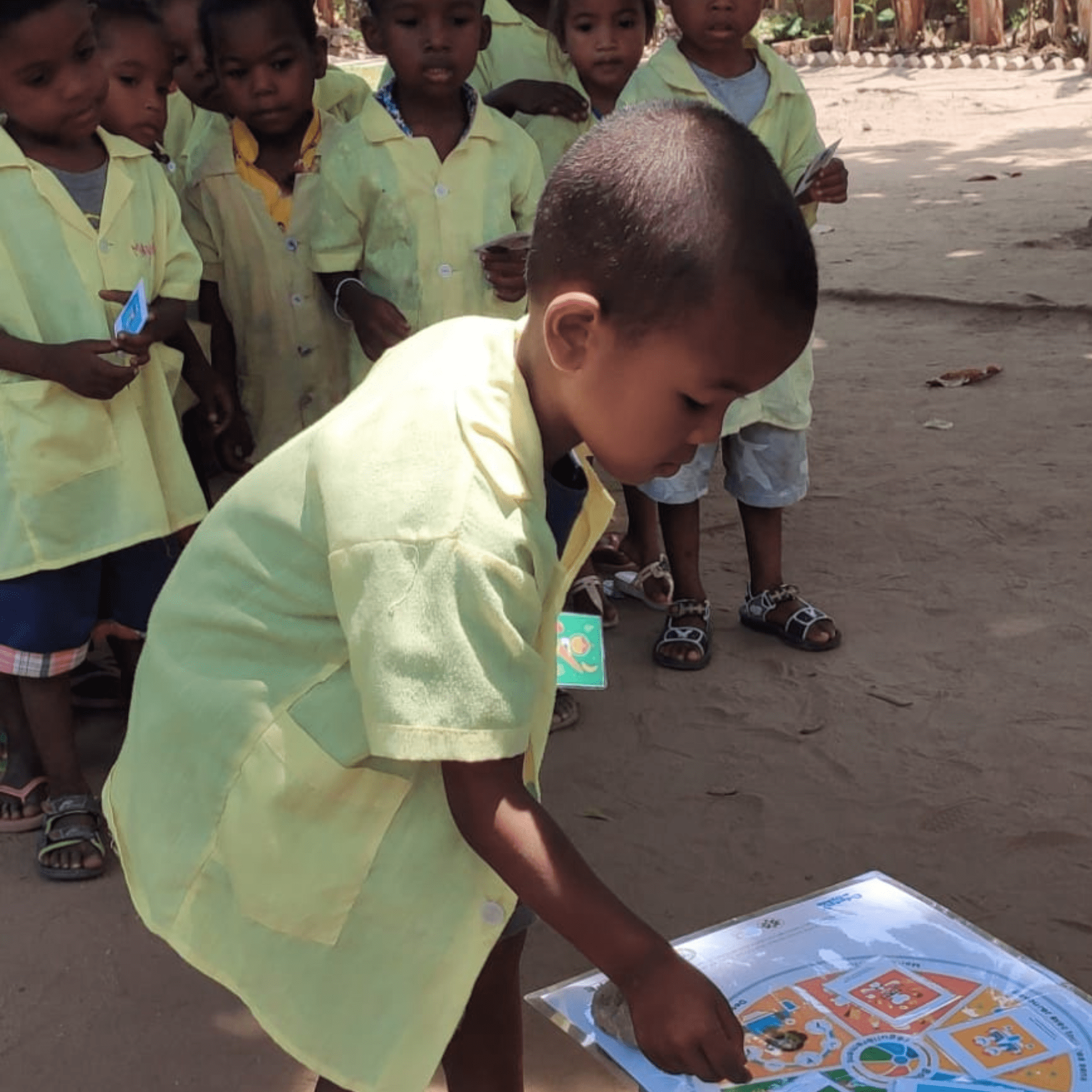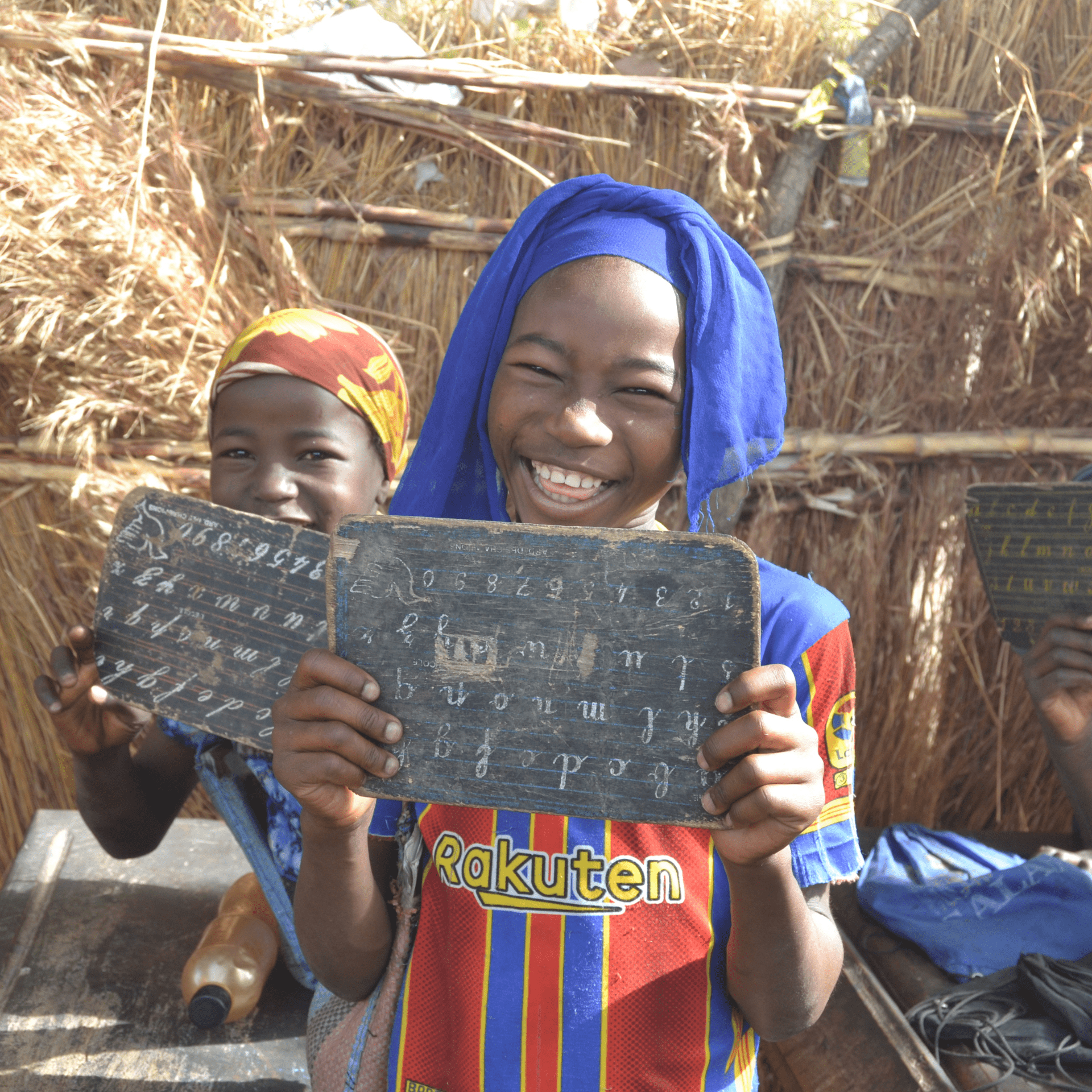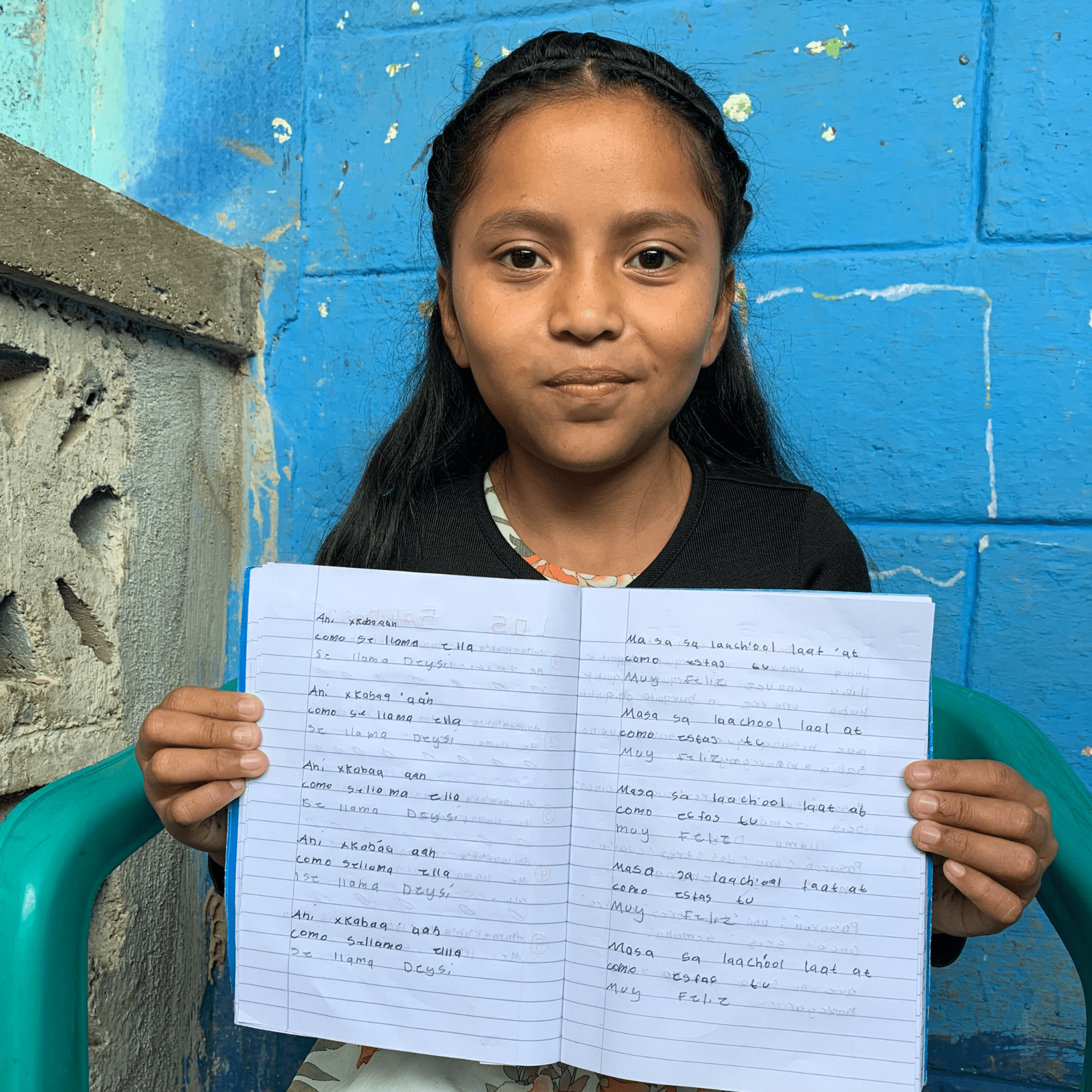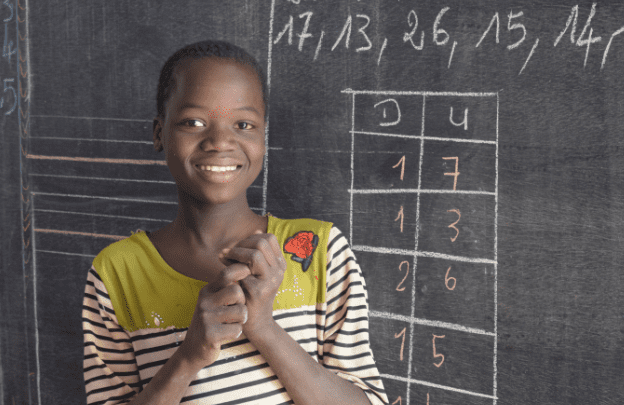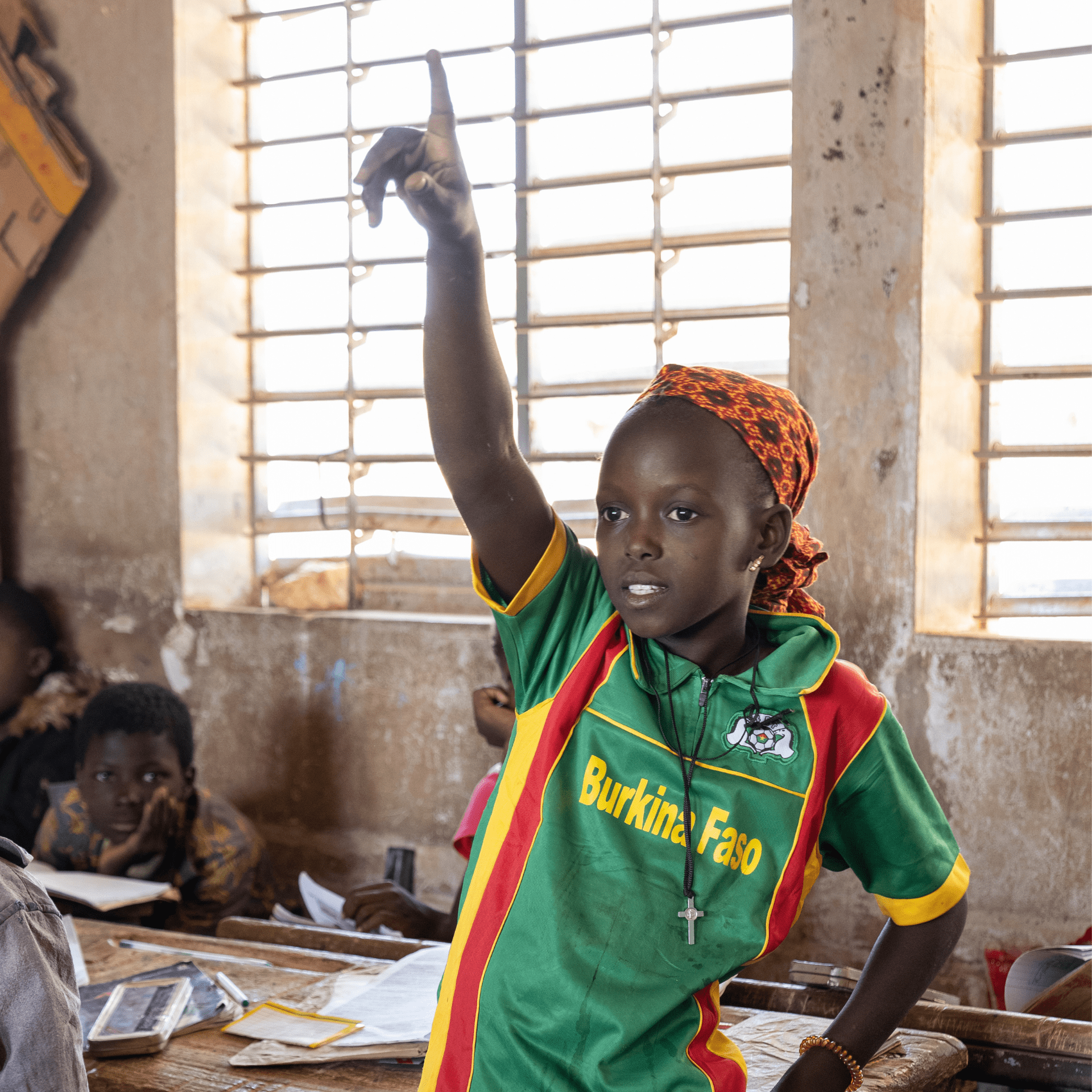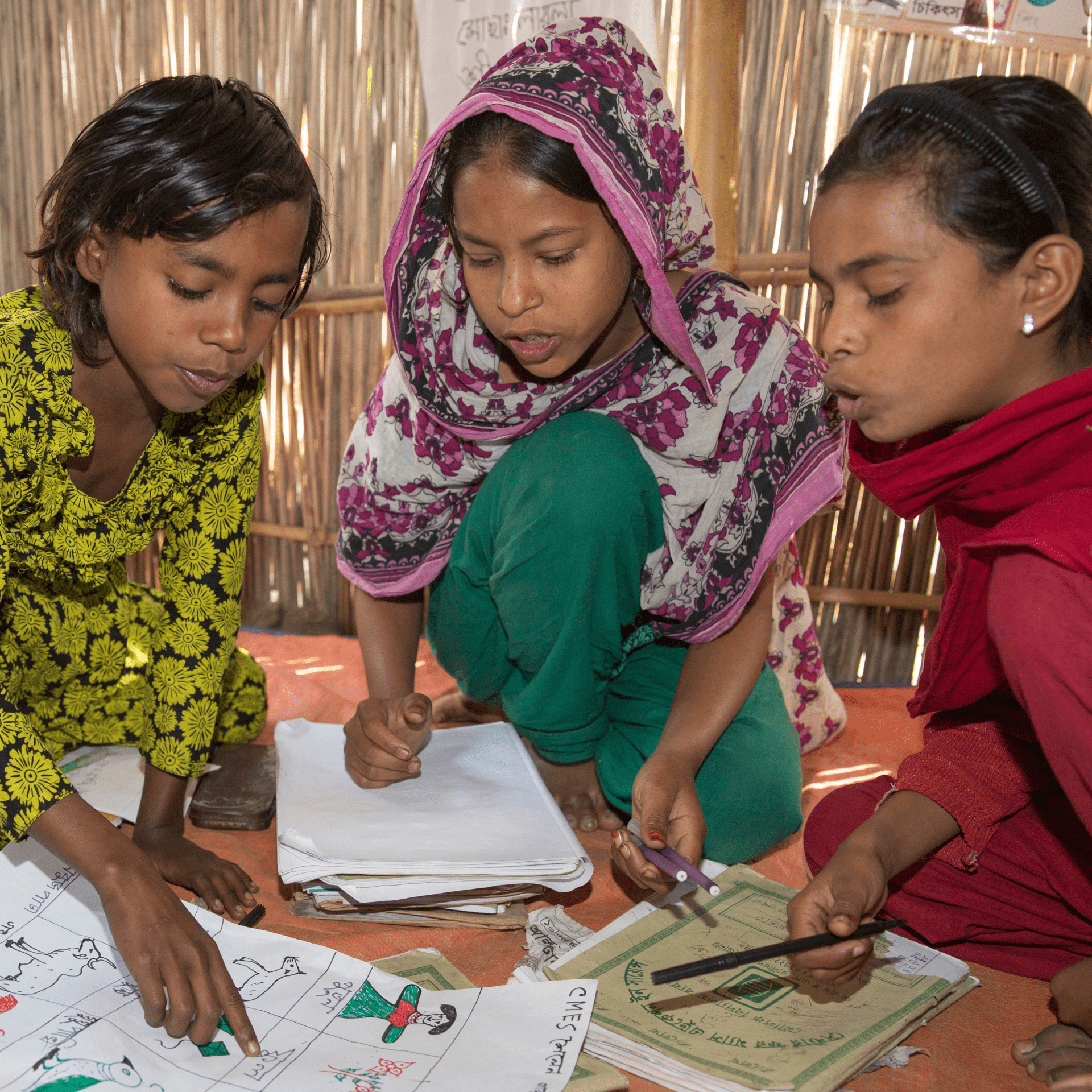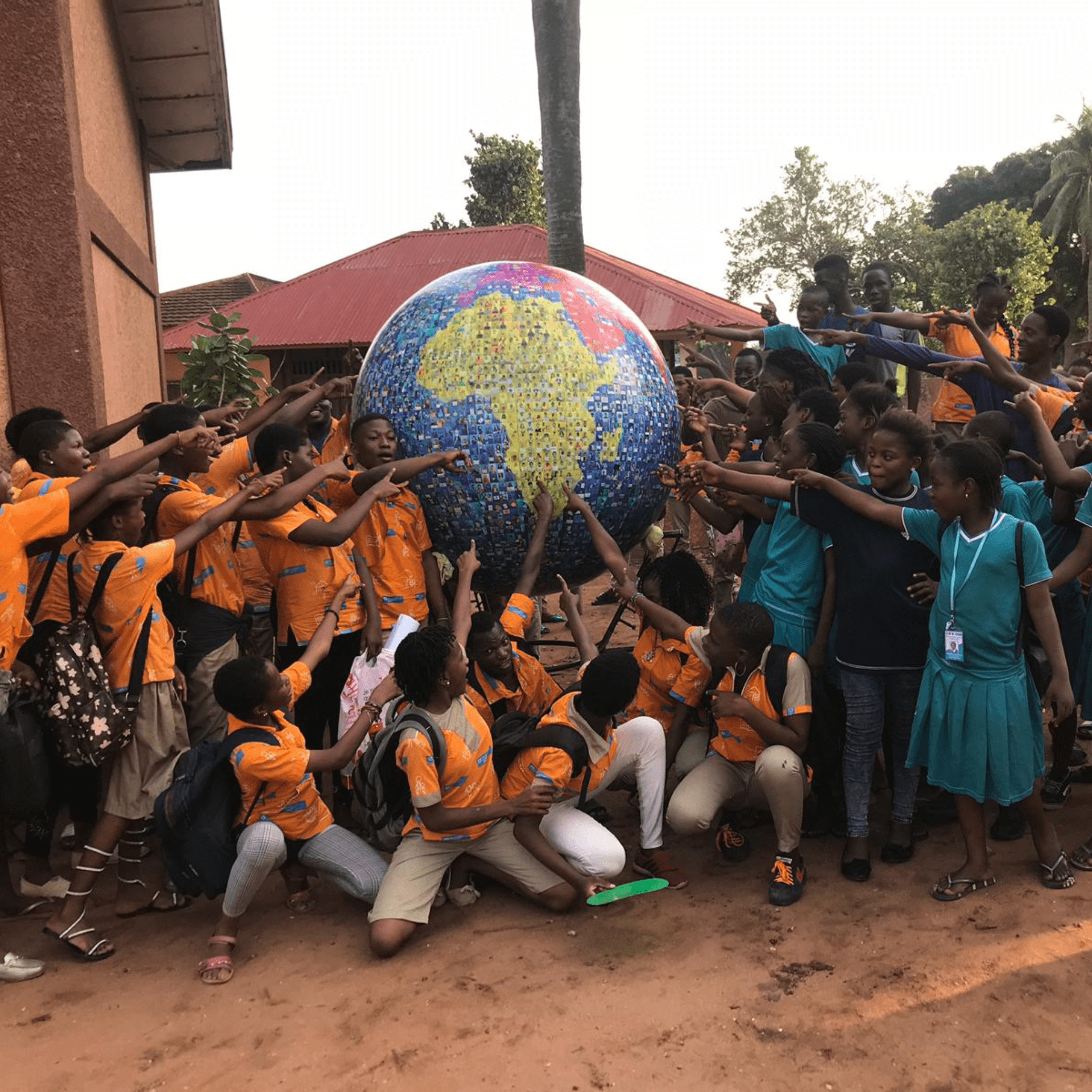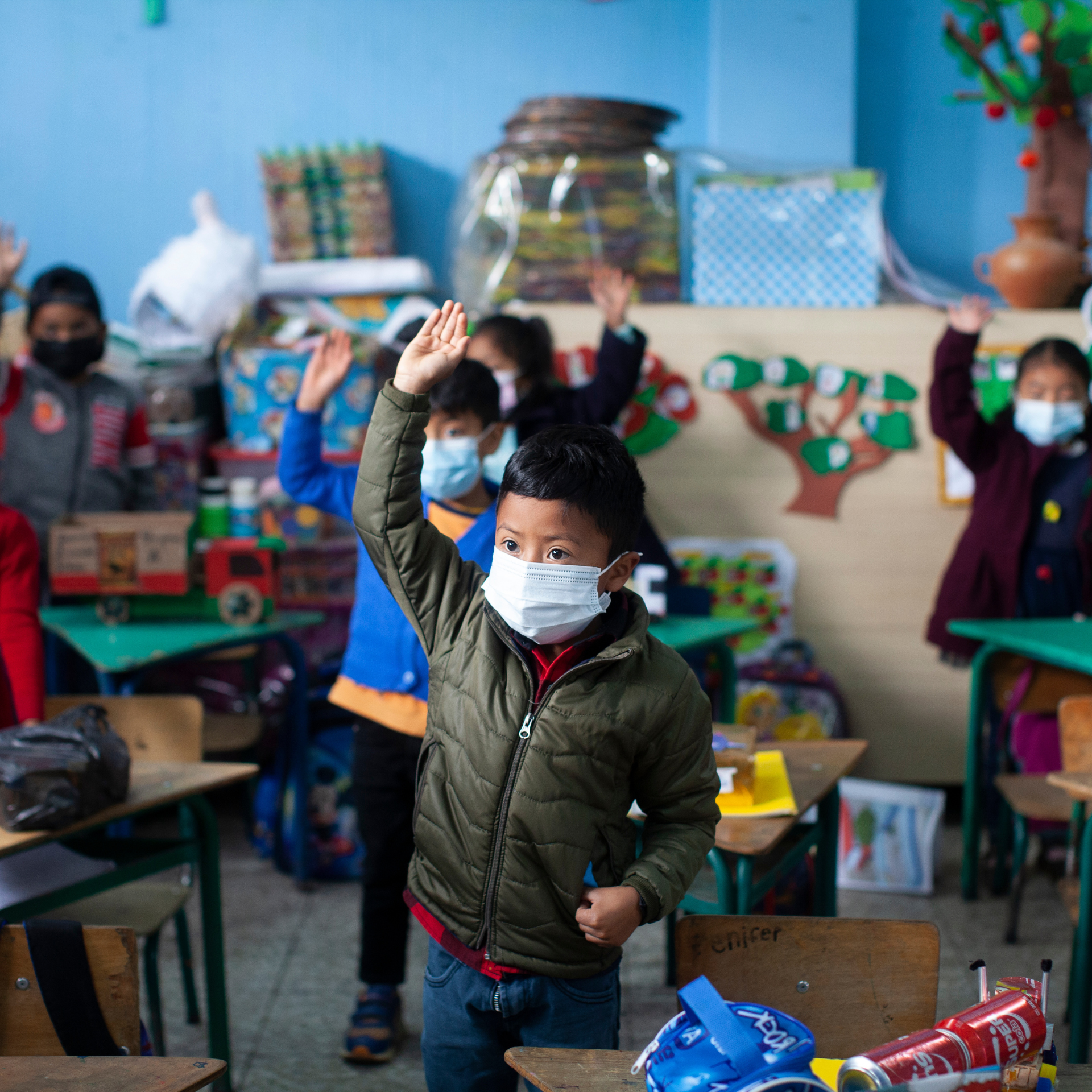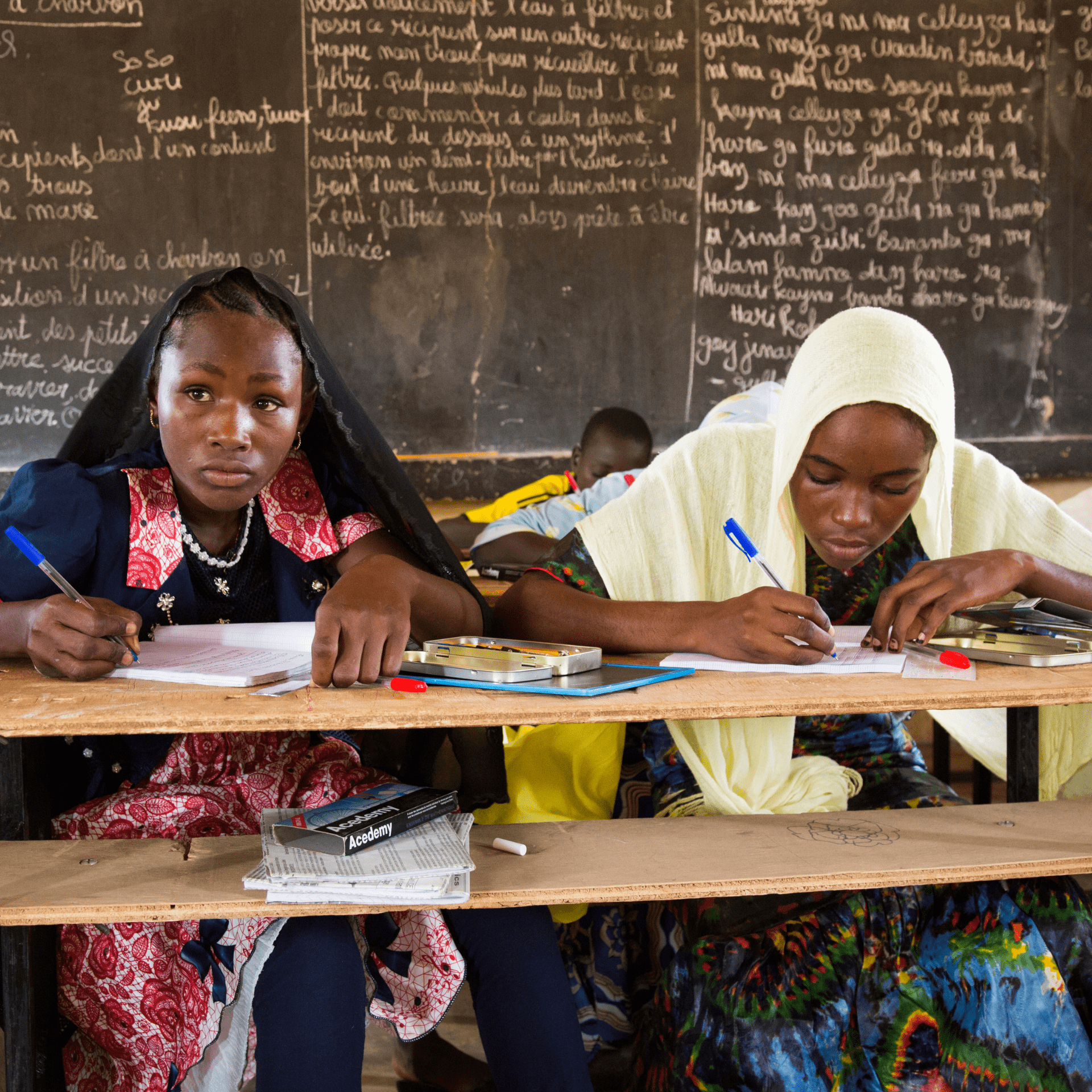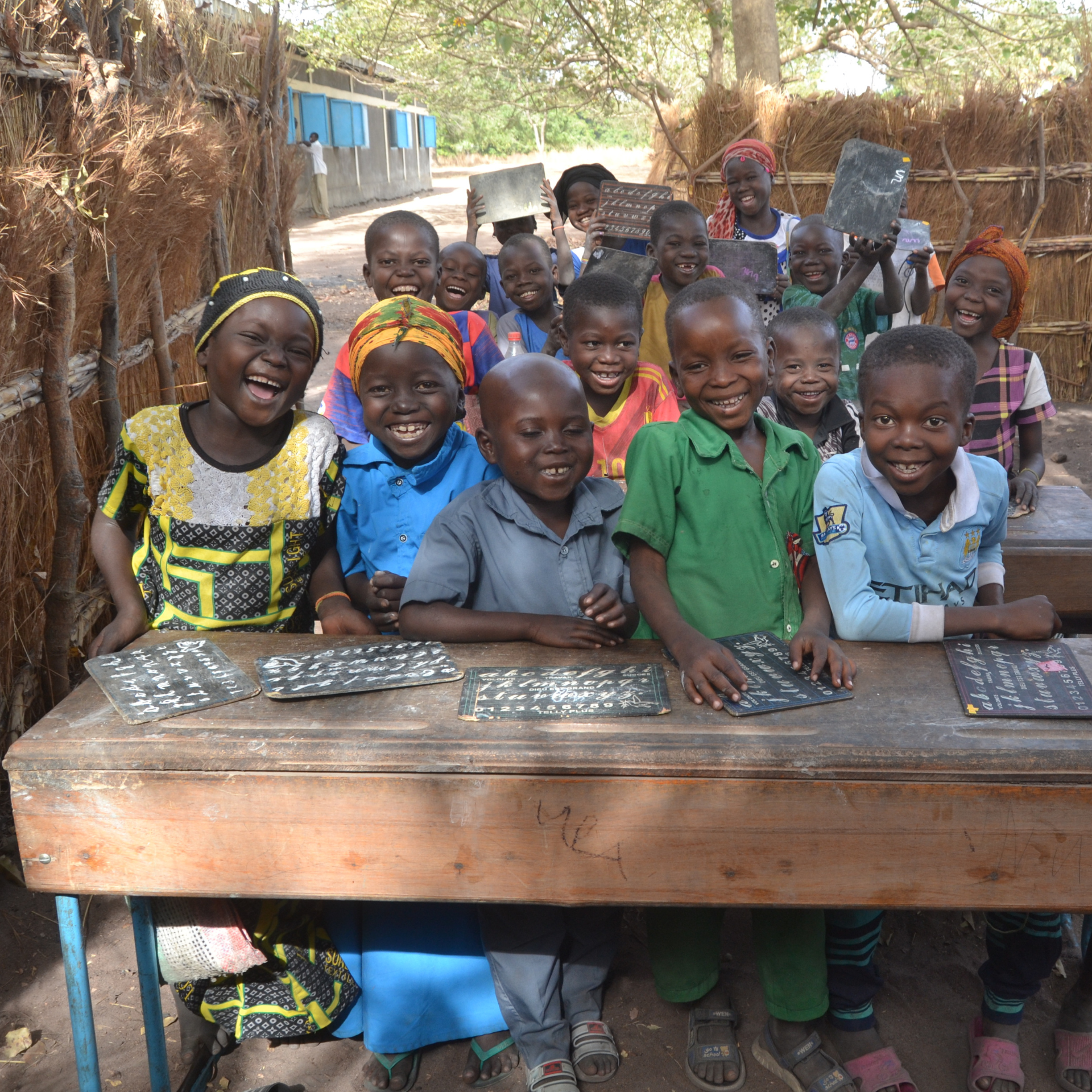
Education tailored to students’ needs
In our schools, we emphasize quality education based on an active and innovative teaching approach developed by our specialists following the numerous failures of literacy campaigns in the 1960s. These campaigns were based on rote memorization and mastery of a limited number of skills.
We advocate teaching in the local mother tongue and the official language of the country, tailored to the needs of children and linked to the local culture. This approach stimulates children’s participation, encourages them to think and act for themselves, and to solve problems independently.
5 Principles for a Quality Education
1. Contextualisation
The content of the lessons is rooted in the everyday reality of the students. We adapt the school curricula after analyzing the educational needs and issues faced by local communities. The subjects taught are relevant to the communities because they can be used in their daily lives.
Our principles in practice in the countries
Bangladesh
By enabling students to acquire not only basic knowledge but also practical skills that can be directly applied in their daily lives, Enfants du Monde has offered better prospects for the future to thousands of girls and boys.
Read more
Benin
We have set up a Master’s degree in bilingualism, multilingualism, and interculturalism to address recurring challenges. Local languages are not sufficiently used in education; subjects are often disconnected from context and have no direct link to the lives and environments of children and young people.
Read moreBurkina Faso
For over thirty years, Enfants du Monde has been working in several regions of Burkina Faso as part of its education program to offer a better future to thousands of disadvantaged children.
Read moreGuatemala
In 2001, Enfants du Monde began its work in the Alta Verapaz region to improve the quality of education and train teachers in bilingual and intercultural teaching.
Read moreNiger
Enfants du Monde works actively in Niger to offer a second chance to children who have dropped out of school or left school too early. The goal is to improve the quality of and access to education.
Read more
Chad
To help children in Chad and enable them to receive a quality education, Enfants du Monde is improving the national education system in a sustainable manner, on behalf of the Swiss Agency for Development and Cooperation.
Read more
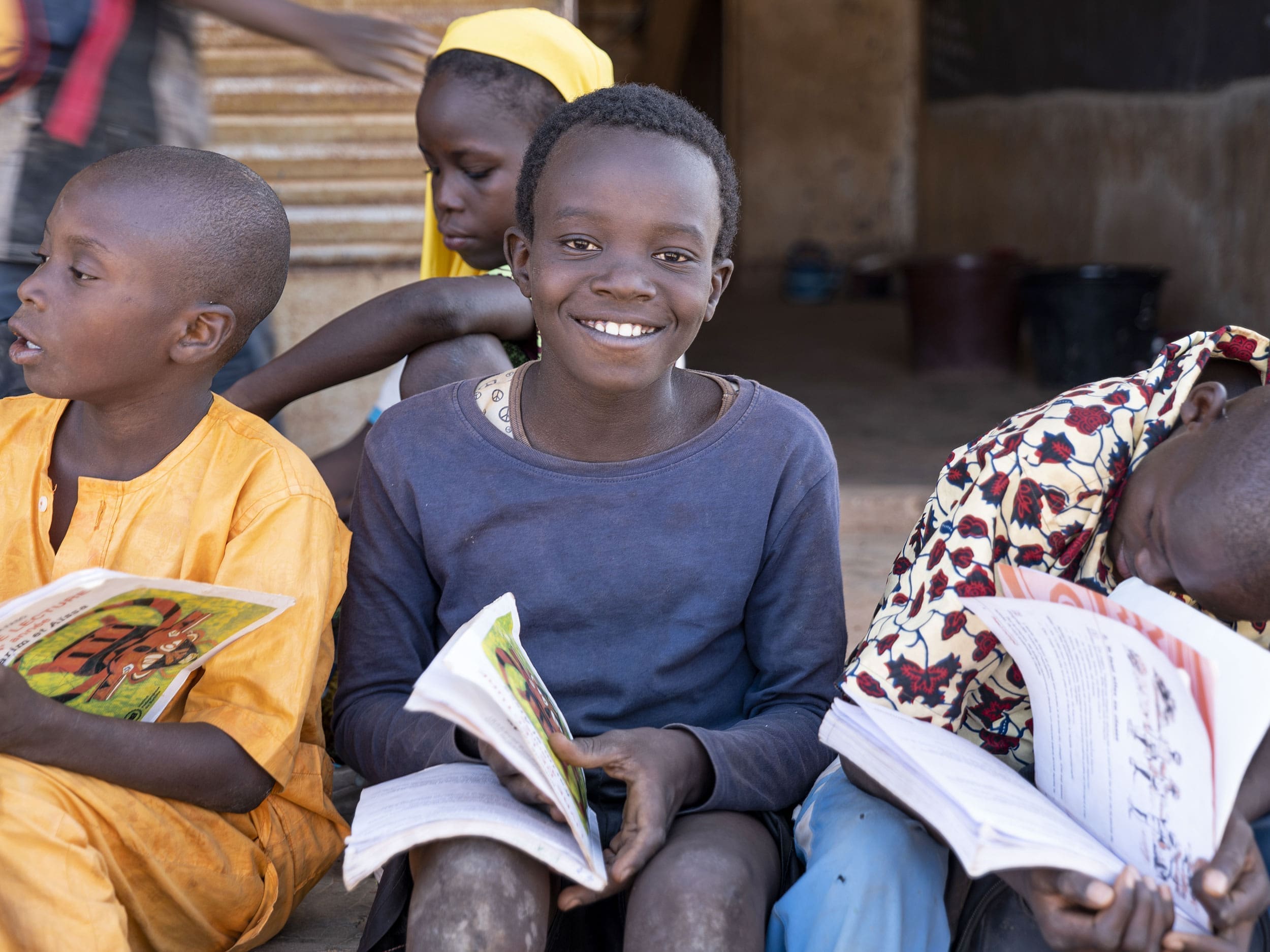
My donation makes a difference
I provide 250 children in Guatemala with a bilingual textbook to help them progress.
I am offering a day of in-service training in bilingual education to 5 teachers in Burkina Faso.
I fund continuing professional training in bilingual education for 17 teachers in Guatemala to improve the quality of their lessons.
